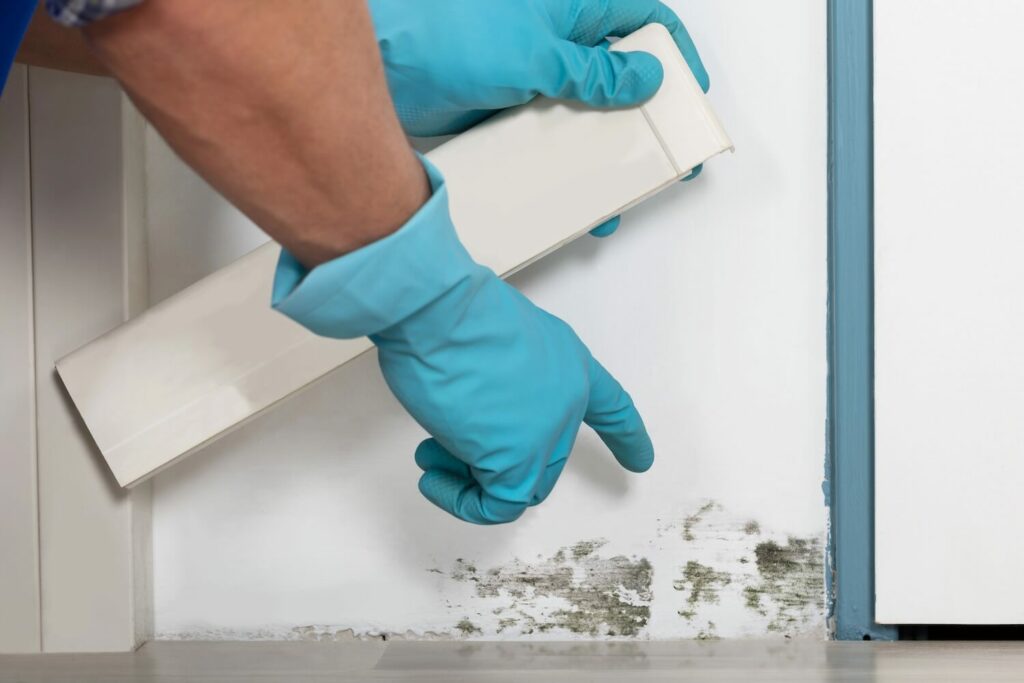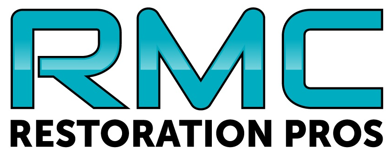Dealing with mold can be a daunting task for any property owner. Mold not only poses health risks but can also cause significant damage to your home or business if left untreated. Choosing the right mold restoration experts is crucial to ensuring that the problem is handled effectively and efficiently. In this guide, we will explore the essential factors to consider when selecting mold restoration professionals, helping you make an informed decision to safeguard your property and well-being.

1. Restoration Credentials and Certifications
Why Proper Company Credentials Matter
When selecting mold restoration experts, their credentials and certifications are crucial indicators of their expertise and professionalism. Mold remediation is a specialized field, and professionals with the right certifications are more likely to adhere to industry standards and use proven techniques.
Key Certifications to Look For
- Institute of Inspection, Cleaning, and Restoration Certification (IICRC): The IICRC is one of the most recognized bodies in the industry. Certified professionals from the IICRC have undergone rigorous training and testing in mold remediation and restoration. Their certification ensures that they are knowledgeable about the latest techniques and best practices.
- Environmental Protection Agency (EPA) Guidelines: While the EPA does not directly certify mold restoration companies, familiarity with EPA guidelines is essential. A company that follows these guidelines demonstrates a commitment to safe and effective mold remediation practices.
- American Council for Accredited Certification (ACAC): The ACAC offers certifications such as Certified Mold Inspector (CMI) and Certified Mold Remediator (CMR). These certifications reflect a professional’s ability to handle mold issues and adhere to industry standards.
Verification of Credentials
Always verify the credentials of the mold restoration professionals you are considering. You can check the certifying organizations’ websites or request proof of certification directly from the company. This verification step is essential to ensure that you are working with qualified experts.
2. Restoration Experience and Expertise
The Importance of Home Restoration Experience
Experience plays a significant role in the effectiveness of mold restoration. Professionals with extensive experience are more likely to handle complex mold issues successfully and provide reliable solutions. When assessing a company’s experience, consider the following:
Years in Business
A company with several years of experience in mold remediation is often more reliable than a newly established business. Experienced companies have likely encountered a range of mold issues and developed effective strategies for remediation.
Specialization in Mold Remediation
While some companies offer a wide range of services, it is preferable to choose a company that specializes in mold restoration. Specialization ensures that the professionals have in-depth knowledge of mold behavior, effective remediation techniques, and prevention strategies.
Knowledge of Local Building Codes
Mold remediation often involves compliance with local building codes and regulations. A reputable mold restoration company should be familiar with the specific codes in your area to ensure that all work is done in compliance with local requirements.
3. Mold Inspection and Mold Assessment
A Comprehensive Home Mold Inspection Process
Before any mold remediation work begins, a thorough inspection is essential to understand the extent of the problem. A reputable company should conduct a detailed inspection that includes:
Visual Inspection
A visual inspection involves examining the visible signs of mold and moisture issues in your property. This initial step helps identify areas that need immediate attention.
Moisture Detection
Mold thrives in damp environments, so identifying and addressing sources of moisture is crucial. Professionals should use tools like moisture meters and thermal imaging cameras to detect hidden moisture sources that may contribute to mold growth.
Air Quality Testing
Air quality testing involves measuring mold spore levels in the air. This test helps assess the extent of contamination and provides valuable information for developing a targeted remediation plan.
Detailed Quality Mold Assessment Report
After the inspection, the company should provide a detailed assessment report. This report should include:
- Extent of Mold Contamination: An overview of the areas affected by mold and the severity of the contamination.
- Source of Moisture: Identification of the moisture sources that are contributing to mold growth.
- Remediation Plan: A comprehensive plan outlining the steps for mold removal, cleaning, and prevention of future growth.
A detailed assessment report helps you understand the scope of the mold problem and the necessary steps to address it.
4. Remediation Plan and Techniques
A Clear and Comprehensive Mold Remediation Services Plan
A well-defined remediation plan is crucial for effective mold restoration. The plan should include:
Containment Procedures
Containment is essential to prevent mold spores from spreading to unaffected areas. The company should outline the procedures they will use to contain the mold, such as setting up physical barriers and using negative air pressure machines.
Removal and Cleaning
The plan should detail the methods for removing and cleaning mold-infested materials. This may involve using specialized equipment and cleaning agents to ensure that all mold is effectively removed.
Restoration
After mold removal, the affected areas must be restored to their pre-damage condition. The plan should include details on repairs, replacements, and any necessary structural work.
Use of Advanced Removal Service Techniques
Reputable mold restoration companies use advanced techniques and equipment to ensure thorough remediation:
HEPA Filtration
High-Efficiency Particulate Air (HEPA) filters are used to capture airborne mold spores and prevent their spread. HEPA filtration is crucial for improving indoor air quality during and after the remediation process.
Anti-Microbial Treatments
Safe and effective anti-microbial treatments help eliminate mold spores and prevent future growth. These treatments should be applied according to industry standards and best practices.
Moisture Control
Addressing the underlying moisture issues is essential to prevent mold from returning. The company should include strategies for moisture control, such as repairing leaks, improving ventilation, and using dehumidifiers.
5. Insurance and Warranties
Home Mold Insurance Coverage
Insurance coverage is a key factor in selecting mold restoration experts. Ensure that the company has:
General Liability Insurance
General liability insurance protects you from potential damages that may occur during the remediation process. This coverage is essential for ensuring that you are not financially responsible for any accidental damage.
Workers’ Compensation Insurance
Workers’ compensation insurance covers injuries sustained by the company’s employees while working on your property. This insurance is important for protecting both the workers and yourself from potential liability.
Warranties and Guarantees
A reputable mold restoration company should offer warranties or guarantees on their work. These warranties provide assurance that any issues related to the remediation process will be addressed at no additional cost. A warranty also reflects the company’s confidence in the quality of their work.
6. References and Reviews
Checking References
Ask the mold restoration company for references from previous clients who had similar mold issues. Contact these references to inquire about their experience, including:
Quality of Work
Ask whether the mold was effectively removed and if the remediation process was completed as planned. Positive feedback on the quality of work is a good indicator of the company’s reliability.
Customer Service
Inquire about the company’s responsiveness, professionalism, and overall customer service. A company that provides excellent customer service is more likely to handle your project with care and attention.
Online Reviews
Check online reviews and ratings on platforms such as Google, Yelp, or the Better Business Bureau (BBB). Look for patterns in the feedback, paying attention to both positive and negative reviews. Online reviews can provide valuable insights into the company’s reputation and performance.
7. Cost and Transparency
Obtaining a Detailed Cost Estimate
Before any work begins, obtain a detailed cost estimate from the mold restoration company. The estimate should outline the costs of inspection, remediation, and any additional services. A clear and detailed estimate helps you understand the financial aspects of the project and avoid unexpected expenses.
Ensuring Transparent Pricing
Choose a company that is transparent about their pricing and any potential additional costs. Avoid companies that provide vague estimates or pressure you into making quick decisions. Transparent pricing reflects the company’s commitment to honesty and integrity.
8. Customer Service and Communication
Evaluating Responsiveness
Assess the company’s responsiveness and communication throughout the process. The company should be prompt in returning calls, answering questions, and providing updates on the progress of the work. Effective communication is essential for a smooth and successful remediation process.
Professionalism
The professionalism displayed by the company’s staff is important. They should be courteous, respectful, and knowledgeable. Professionalism also extends to their appearance and the condition of their equipment. A professional demeanor reflects the company’s commitment to high standards and quality service.
Conclusion
Choosing the right mold restoration experts involves careful consideration of several factors, including credentials, experience, inspection procedures, remediation techniques, insurance coverage, references, cost, and customer service. By following the guidelines outlined in this article, you can make an informed decision and select a company that will effectively address your mold issues and restore your property to a safe and healthy condition.
Addressing mold problems promptly and with the right expertise is crucial for protecting your property and health. Take the time to research and choose a company that meets all your requirements, ensuring a thorough and professional mold remediation process. With the right experts on your side, you can resolve your mold issues and enjoy a safe, clean environment in your home or business.
